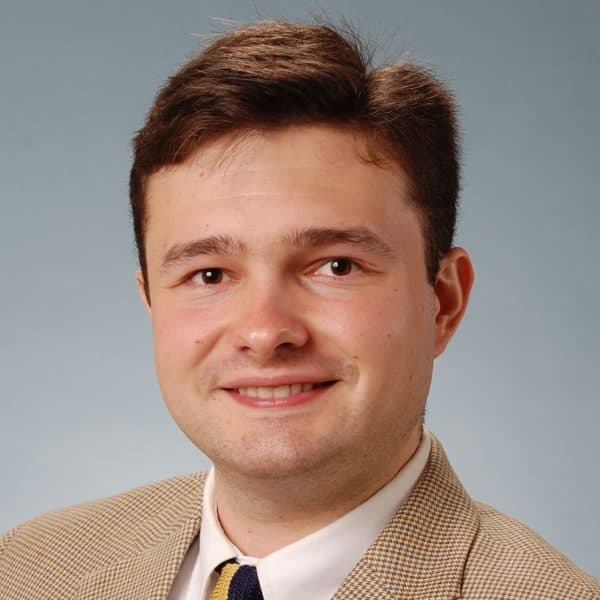Advertisement
Commentary
In a dementia clinic, our work is full of long goodbyes

Helping people say goodbye is an important part of doctoring. As an intern and resident, I learned to jog alongside a gurney and, in the time it took to ride an elevator from the ED to the ICU, figure out how the patient’s wife could say in a few minutes what would otherwise take a lifetime to share. In these last two years as a fellow in cognitive neurology, I coached patients in my dementia clinic on how to say the long goodbye over and over, to different parts of who they are.
But doctors themselves have a hard time filling their own prescriptions. Having spent the last six years of training more in the hospital than at home, more with patients than with family, I was having a hard time facing my impending departure in clinic. Over the two years I focused on my clinic, exclusively working with patients, I watched as other fellows secured grants and titles. I had done good work, but felt rather unaccomplished compared to the writeups in the hospital bulletin for this or that doctor-turned-researcher.
Summer is graduation season, full of new beginnings and opportunities. For medical trainees, though, our departure directly destabilizes the longitudinal care of patients who now must repeatedly re-establish care all over again. Old hearts must reopen old wounds to fresh interns, and I’ll start over again somewhere else, with someone else.
In these last two years as a fellow in cognitive neurology, I coached patients in my dementia clinic on how to say the long goodbye over and over, to different parts of who they are.
In broaching this with my patients, I started out bashful but soon affected a matter-of-fact approach. My fellowship was coming to an end, I said, and I assured them steps would be taken so they wouldn’t get dropped from the clinic. Some patients wanted to follow me; some wanted out entirely of fellows’ clinic, now that another cycle had finished, and were ready to be seen by “a real doctor.” Everyone said thank you. But an unexpected response from a goodbye I’d been dreading made me rethink what I had earned — instead of grants or titles.
Mrs. Clancy was one of the first patients I’d met in my fellows’ clinic. I’d felt sad early on, when I told her she wasn’t crazy like she feared; instead, she had a relentless degenerative disease. I felt bad when she said goodbye to swift walking and easy talking and hello to spasm and stammering, as her disease picked up at a pitiless pace. I felt worse when every drug’s side effect was the main effect. The past few visits I didn’t make any real recommendations — but simply wrote down her unexpected triumphs (surprising herself when she discovered she could still sing better than she could talk, or how strong she felt when, no matter if it took all day, she was going to mow her lawn, and still could). Reviewing her chart this last time, I thought to myself, “Well, at least she has one less doctor to literally drag herself to see.” I asked if the new patch did any good for her memory; she said no, it just upset her stomach. I asked what she was doing for fun. “My dogs walk me,” she sputtered delightedly, “and I can still play guitar!”
This seemed like a good note to end on. Looking up at the clock, I told her about how I was sorry that I hadn’t found something to help her more, that I was grateful for her willingness to try, and that I would make sure to get her into one of the expert’s clinics upon my departure from fellowship. Maybe that expert would have a research trial? She was quiet for a while, and then after several false starts, in her spastic rasp of a voice she said, “I’m proud you’re my doctor.”
[I]n her spastic rasp of a voice she said, “I’m proud you’re my doctor.”
It caught me off guard. Pride is a deep satisfaction of one’s achievements or possessions. I think of patients being grateful for or glad about their doctors, because as a doctor I’ve been grateful to a patient or glad about their outcomes. But pride is the stuff of parent to child, teacher to student, friend to friend. I asked her why. Big time doctors, she said, are looking for subjects to fit their trials. She felt excluded when she left their visits, because she didn’t meet the right criteria. But in a trainee’s clinic she was accepted as is. She appreciated that I spent more time talking with her than to her, and wrote more about her than her disease. She didn’t give up because I didn’t give out, and was always trying with a student’s earnestness. She was proud to be in a fellow’s clinic, she said: “for the fellowship.”
There’s talk in medicine about not saying things like “my" patient, or “my" doctor, because it’s proudly possessive. But Mrs. Clancy’s pride reminds me that this kind of possession is not born of ownership, but of affiliation, not of retention but of relationship. If she is proud of me, it’s not because of what I did for her but what I am to her. And having reached this kind of fellowship, it's something that’s never left behind, even when you say goodbye.
